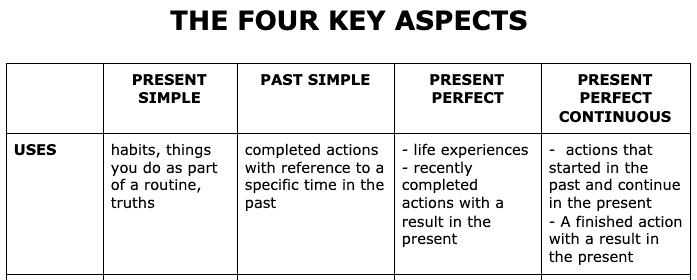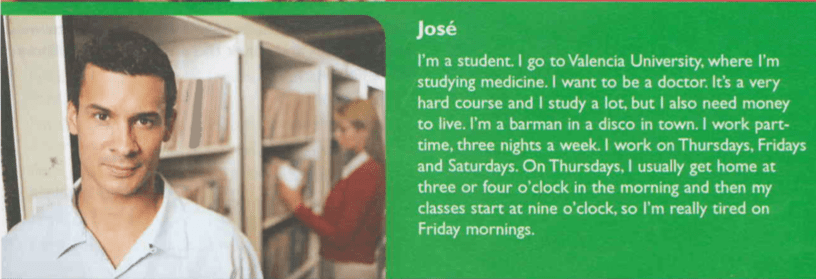On taking a long break from learning English
Just last week, I encountered a new situation in my fifteen-year career as an English Language Teacher. A student returned to me after a sixteen-month break from learning English.
Sure, I've taught quite a few students who disappeared for a few months for summer holidays and what not.
However, the return of this particular student to action has presented me with something of a challenge.
I’d just like to share my thoughts on the approach I plan to take with this student.
WHAT'S THE best WAY TO TREAT A STUDENT WHO'S TAKEN A LONG BREAK FROM LEARNING A LANGUAGE?
Well, sixteen months is a long time. Nevertheless, this doesn’t give me a right to initiate some great inquisition into the student’s reasons for disappearing.
After all, only this student knew what she felt inside at the time she stopped taking classes. I surmised that the demands of life had caught up with her. Young daughter. Household chores. More duties at work. Honestly, my work-life balance has never really spiralled out of control. Hence, I do my best to empathise with those who’ve got more on their plates than I have.
Some teachers might focus on 'making up for lost time'. In other words, they may overload their returning students with homework. Moreover, tasks done in class may be of the mentally-taxing variety.
I’ve not taken such a hardline approach with this young lady.
In my initial email to this student, I wrote about adopting a 'back to basics approach' for a month or two. I also outlined my desire to help her 'get up to speed again'. I plan to do this through the use of the Innovations Elementary coursebook. She was a very strong intermediate student the last time we met in July, 2019. Nevertheless, she’s bound to be rusty in a whole range of areas.
A few days after this lady’s first class back, I briefly spoke with her husband. He also learns English with me. I believe he was instrumental in his wife’s return to action. Anyway, I told him that we need to help his wife get her confidence back. I also mentioned that 'some of the old magic is still there' when she speaks English.
OVERPRAISING AND REALISM - THE NEED TO PERFORM A BALANCING ACT
With students who’ve taken a long break from English, I believe that the teacher’s choice of words and feedback are more important than the actual learning content.
Again, it comes down to performing a balancing act. For a start, I don’t want to start overpraising this lady for her linguistic abilities. This might cause her to sit back and relax. Hence, my feedback was rather balanced. I combined the truth (the “old magic is still there”) with the reality (the need to “get up to speed again” and a “back to basics approach”).
Clearly, I’m not one for cheesy clichés like “You’re great!”. I only try to make meaningful comments and give specific feedback.
To exemplify this point, I have a student who’s come on leaps and bounds in recent years in terms of fluency and expressing ideas. This is certainly worthy of praise. However, this student has so little control over the present simple and past simple tenses. Here’s what I told him:
In recent years, our focus has been 95% fluency and 5% accuracy. I would like to shift that to around 75% fluency and 25% accuracy. This is because you hardly have any control over the present simple and past simple ... But ok - you've shown you can be fluent. Let's redress the balance.
Hence, I prefer to mix subtle praise with meaningful ideas to help my students make progress.
THE ROLE OF THE TEACHER AS A MOTIVATOR
There’s still a long way to go but I’d really like to work on the motivational side of teaching.
Sometimes, it boils down to choosing the right words rather than displaying an in-depth knowledge of psychology.
I may be straying off topic a jot, but I’ve just listened to what former Manchester United captain, Roy Keane, said about his manager, Alex Ferguson:
You’d be in a situation, a massive situation before the game, half-time, pre-season. I always felt he said the right thing at the right time - just what the team needed, just what the player needed … As I was getting older, I’d be analysing, and going what do I think the players might need. And he would always get it spot on. He’d always say the right thing. You go, that is brilliant. Brilliant what he’s just said there.
That’s what we language teachers should be aspiring to. It’s not all about dishing out language materials and checking homework. It’s about being inspiring without being overly imposing and demanding.
SAYING GOODBYE TO A VERY SPECIAL STUDENT
I must have taught English to a few thousand students. Nevertheless, one girl, Maja, really stands out in my memory.
Maja was a seventeen-year-old whose dream it was to be a doctor. Her knowledge of psychology, medicine and languages was extraordinary. She could converse about anything and everything in exemplary English. Frankly, I still haven’t witnessed anything quite like it as an English language teacher.
Aware that Maja was destined for great things, my final words to her were: “Maja, you can do anything you want to in your life”. In response, Maja stood up with a smile on her face, muttered “thank you” and left the room with a spring in her step.
Now, I don’t always get it right with my choice of words. However, I’d like to think that I got it right with young Maja.
WHAT DO YOU TEACH A STUDENT WHO’S TAKEN SUCH A LONG BREAK FROM LEARNING ENGLISH?
As previously mentioned, I favour a 'back to basics' approach with those who’ve taken a long break from learning English.
Initially, my aim is to get the young lady in question to communicate using the four key tenses of English. These tenses are the present simple, past simple, present perfect and present perfect continuous.

I’ve always favoured fluency and communicating ideas over accuracy. However, students who’ve had a long break from learning English may feel anxious about making mistakes. Therefore, I need to get the balance between fluency and accuracy right.
For our first lesson back, I got this lady to use the present perfect to introduce a range of life experiences she’s had.
In a nutshell, I taught her to introduce the life experiences with the present perfect (1). After that, she had to mention specific details of certain life experiences using the simple past (2).
For example:
1. I’ve been to the Baltic Sea many times.
2. The first time I went there was when I WAS around seven-years-old.
2. I WENT to the Polish seaside resort of Rozewie with my parents and sister.
2. We also VISITED Puck and a few other places in the area.
Hence, we have a nice 1,2,2,2 pattern to describe life experiences. The present perfect is barely involved at all. It’s the past simple that does most of the heavy lifting.
All in all, this lady had plenty of speaking practice during her first lesson back. There was also an element of challenge for her in terms of describing life experiences using the 1,2,2,2 model.
I plan to extend the 'life experiences' topic in the next class. The student could practice the negative form (I haven’t ...), and then talk about a similar life experience she has had. For example:
“I haven’t been to Sopot - but I’ve been to Gdynia. The last time I WENT to Gdynia was a few years ago …”
THE PRESENT SIMPLE aspect - THE ESSENCE OF ENGLISH
After we have done the 'life experiences' topic, I plan to spend six or seven sessions working through Innovations Elementary.
The book has some excellent personal accounts and stories which emphasise the present simple aspect. Take a look at this account of a lady describing her daily life:

Using Ting Ting’s account as a guide, my student will be able to talk about her job and home life. It would be desirable for her to use as many of the phrases and keywords in Ting Ting’s story as possible.
The joy of some of these texts is that the student can mix the present simple and past simple. This text might enable my student to recall her own days at university or part-time jobs she has had in her life:

A LONG BREAK FROM LEARNING ENGLISH - there's no REASON TO HIDE BEHIND A WALL OF ANXIETY
The young lady in question shouldn’t view her long break from learning English as sixteen wasted months.
She should view her return to action as an opportunity - a fresh start. Certainly, it’s time for her to get to grips with the present simple, past simple, present perfect and present perfect continuous tenses. Perhaps it’s time to experiment with new vocabulary learning strategies. Maybe it’s time to create and store personalised sentences (i.e. true sentences about one's experiences, current work-life situation and future plans) containing newly-learned vocabulary and phrases in a Word-Phrase Table.
When I moved back to Poland in February, 2020, I hadn’t heard or spoke any Polish for almost seven years. My comprehension of the language and ability to utter the basics will never leave me.
I see those missing seven years as an opportunity to challenge myself in the present. The magic is still there. Somewhere.



